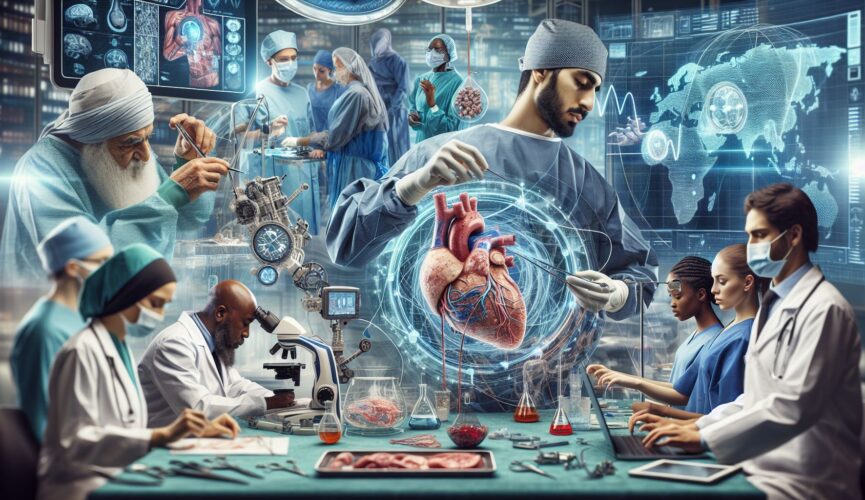Advancements in medical technologies have revolutionized the healthcare industry, significantly improving patient outcomes and saving countless lives. As future medical professionals, it is crucial for us, students of medicine, to stay informed about these innovations and their impact on treatment facilities and the recovery process. In this blog post, we will explore some remarkable medical technologies that have proven to be instrumental in saving lives.
Introduction: Embracing Innovation in Medicine
Medical innovation is a continuous process driven by the pursuit of enhancing the quality and longevity of human life. Technological advancements have played a pivotal role in this journey, enabling healthcare professionals to provide better diagnosis, treatment, and care for their patients. The following exemplary medical technologies have not only saved lives but have also improved the overall efficiency and effectiveness of the healthcare system.
Robotic Surgery: Precision and Minimally Invasive Techniques
Robotic surgery has revolutionized the field of surgery by providing precise, minimally invasive techniques. This technology allows surgeons to perform complex procedures with enhanced accuracy and control, resulting in reduced complication rates and quicker recovery times for patients. Miniaturized robotic arms are used to perform highly intricate operations, allowing for smaller incisions, reduced blood loss, and minimal scarring. By leveraging robotic surgery, medical professionals can optimize treatment facilities and provide patients with a quicker and less painful recovery process.
Artificial Intelligence in Diagnosis: Enhancing Accuracy and Speed
Artificial Intelligence (AI) is making remarkable strides in healthcare, particularly in the field of diagnosis. AI algorithms are capable of processing vast amounts of medical data to identify patterns and make accurate predictions. Through sophisticated imaging systems and machine learning algorithms, AI has facilitated early detection and improved diagnostic accuracy in conditions such as cancer, cardiovascular diseases, and neurological disorders. By leveraging AI technologies, medical professionals can expedite the diagnosis process, leading to prompt and personalized treatment plans.
Telemedicine: Expanding Healthcare Access
Telemedicine has emerged as a lifeline for individuals who lack access to immediate healthcare facilities. This technology allows patients and healthcare providers to communicate remotely through video conferencing, ensuring they receive timely medical advice and support. Telemedicine is particularly invaluable in rural or remote areas, where medical resources are scarce. By utilizing telemedicine, patients can consult with specialists without the need for extensive travel, reducing healthcare expenses and optimizing treatment facilities. This technology has undoubtedly played a vital role in saving lives by bridging geographical gaps and expanding access to quality healthcare.
Wearable Medical Devices: Preventative Monitoring and Early Intervention
Advancements in wearable medical devices have empowered individuals to proactively monitor their health and receive early interventions. Devices such as smartwatches, fitness trackers, and mobile health apps enable the continuous collection of vital health data. These tools can detect irregularities in heart rate, blood pressure, and even sleep patterns. By analyzing this information, individuals and their healthcare providers can identify potential health risks and intervene before severe complications arise. Wearable medical devices have become invaluable in the prevention and management of chronic diseases, ensuring timely treatments and ultimately saving lives.
Conclusion: Embracing the Future of Healthcare
As students of medicine, embracing and familiarizing ourselves with these medical technologies will play a crucial role in our future practice. These life-saving advancements, including robotic surgery, AI in diagnosis, telemedicine, and wearable medical devices, continue to shape the landscape of healthcare. By staying informed and incorporating these technologies into our practice, we can enhance patient care, optimize treatment facilities, and contribute to saving lives.
In the ever-evolving world of medicine, technological innovation holds immense potential. By embracing these advancements, we can drive positive change, improving healthcare outcomes, and ultimately, making a significant impact on the lives of patients. As we embark on our journey as medical professionals, let us continue to champion the integration of medical technologies, providing better care, and ensuring a brighter future for the field of medicine.
